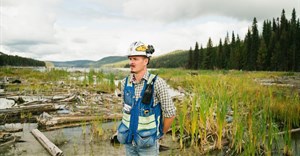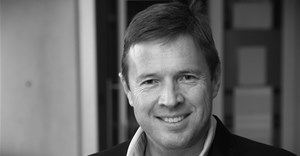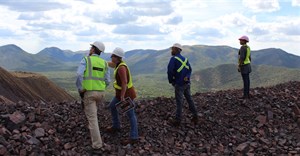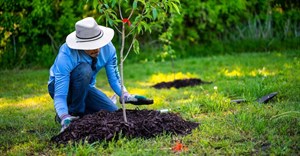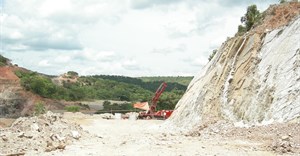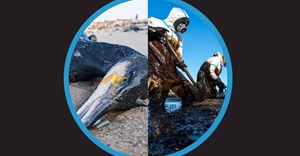
Subscribe & Follow
Why impact assessments should be built on human values

According to Tim Hart, corporate social and development consultant at SRK Consulting, this was clear at the latest conference of the International Association for Impact Assessment (IAIA) held in Durban last month. Hart presented a paper at the event on "Full project cycle social impact assessment (SIA): Optimising social outcomes" – describing work in progress to optimise outcomes of social projects and investments in mining communities.
“The scope of impact assessment is extending well beyond orthodox environmental and social impact assessment (ESIA) – with human rights, biodiversity, social transformation, stakeholder empowerment and climate change standing out as key conference themes,” said Hart.
Thriving sector
In this context, he said, there is no doubt that impact assessment and its associated disciplines was a thriving sector both locally and internationally. The Durban event attracted some 900 delegates from 80 countries, with significant representation from African countries; the focus was on environmental justice in societies in transition.
Among the delegates were several international finance institutions and lenders; as noted by Andrew Hart, senior social scientist at SRK, this was a clear indication of how seriously ESIA is being taken in the investment world. He presented a paper – "Managing RAP expectations and timelines" – exploring how mines’ unrelenting schedules and budgets often do not align well with a carefully managed and implemented resettlement process, potentially undermining both the resettlement process and the social license to operate.
Part of the SRK team at the event, principal environmental scientist Philippa Burmeister highlighted the vital role played by scientists in determining the value sets against which impacts are assessed.
AI and machine learning
“Among the useful discussions at the conference was the potential for artificial intelligence or machine learning to make impact assessment quicker and more cost effective,” said Burmeister. “But the fact remains that our function as practitioners requires impacts to be assessed against a diversity of human values. Data mining technologies that companies like SRK are developing will make the processes more efficient; they are, however, just one part of an assessment that will always require a human element.”
Thula Nembula, SRK environmental scientist, also emphasised the human aspects of ensuring that key impact assessment requirements like public participation remain meaningful – and do not become ‘tick box’ exercises.
“Case studies presented at the conference showed the importance, for instance, of understanding the political economy of extractive investment in Africa, and the prominence of issues like land acquisition, land tenure and gender in African countries,” said Nembula.
He emphasised that one of the primary concerns of stakeholder engagement was to understand the livelihoods of the society affected, so that strategic management plans such as the Resettlement Action Plan (RAP) could contribute to restoring those capacities.
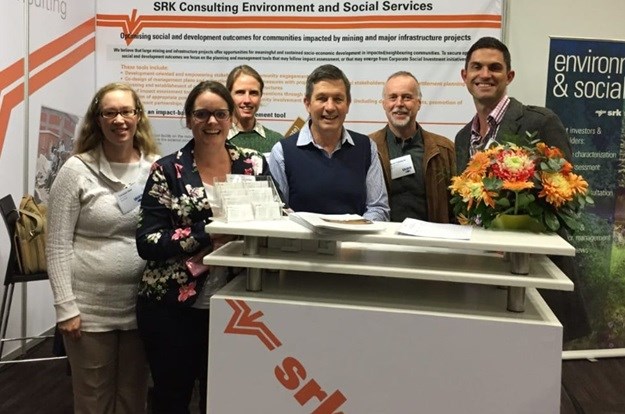
Still 'a long way to go'
While environmental regulations have become more stringent around the world, there remains “a long way to go” in terms of achieving environmental justice, according to SRK senior environmental scientist Tamaryn Hale.
“Presenters at the conference showed clearly that the implementation of environmental laws and policies in many developing countries was still in its infancy,” said Hale. “In the meantime, the environment continues to suffer; this forum highlighted the need for impact assessment practitioners, governments, developers and communities to work much more closely together.”
In a similar vein, the conference’s keynote address by activist and retired Constitutional Court judge Albie Sachs hit a positive note by highlighting the fact that South Africa is the first country to have included environmental rights in its Constitution, said SRK principal environmental scientist Kirsten King.
“He commented on South Africans’ common and strong connection to the land and reminded us to focus on reinforcing our human interdependence,” said King. “In this way, instead of being a source of division, environmental activism could become a strong unifier in a less greedy society.”
She added that environmental consultants should emphasise to clients the importance of working with environmental organisations and activists – to ensure that adequate checks and balances are in place to protect legislated environmental rights during the full project life cycle.







